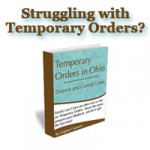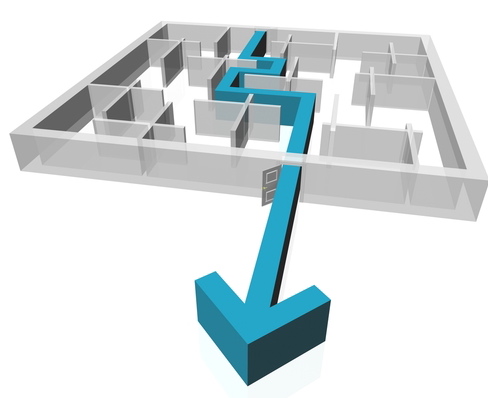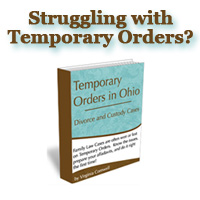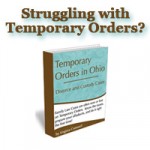 This is the 4th installment in a series by Virginia Cornwell, a Columbus Ohio Divorce Attorney and Ohio State Bar Association Certified Family Relations Specialist. Virginia is one of approximate 100 attorneys in Ohio to have received this honor. This article is about the process and options for ending your marriage in Ohio, and about Ohio divorce laws.
This is the 4th installment in a series by Virginia Cornwell, a Columbus Ohio Divorce Attorney and Ohio State Bar Association Certified Family Relations Specialist. Virginia is one of approximate 100 attorneys in Ohio to have received this honor. This article is about the process and options for ending your marriage in Ohio, and about Ohio divorce laws.
 In addition to making any necessary safety preparations and preparing for temporary restraining orders, you will need to think about where you are going to live during the divorce, prepare for some unpleasant realities associated with the initial stages of divorce, and gather information you will need to have available to you during the divorce.
In addition to making any necessary safety preparations and preparing for temporary restraining orders, you will need to think about where you are going to live during the divorce, prepare for some unpleasant realities associated with the initial stages of divorce, and gather information you will need to have available to you during the divorce.
WHERE ARE YOU GOING TO LIVE DURING THE DIVORCE?
Generally, both Husband and Wife are allowed to live in the marital home while the divorce is pending. Civil Rule 75 gives the court the authority to enter temporary orders regarding spousal support and the expenses of the parties during the litigation. In addition, Civil Rule 75 gives the court the authority to make orders regarding the support, maintenance, and allocation of parental rights and responsibilities for the care of children of the marriage. It does NOT however, give the court the authority to make orders regarding the use of property during the divorce. Attorneys sometimes file what is called a “Motion for Beneficial Use” of the house or a certain vehicle, but it has been a long time since I have seen a court grant the motion without the parties’ agreement. In theory, it is possible a court can still make such orders under its general equitable powers, but many judges and magistrates are reluctant to do so, and for good reason.
 Ohio Revised Code 3105.171 requires a court to divide the property of the parties in a divorce, but the statute requires the court to FIRST determine which property is marital property and which property is separate property. This is something the court does at the end of the case, after parties have presented evidence at a trial. Although ORC 3105.171(J) states that the court may make “An order granting a spouse the right to use the marital dwelling or any other marital property or separate property for any reasonable period of time”, that section does not excuse the court from the requirement to first determination what is marital property and what is separate property, and the court cannot do this without evidence.
Ohio Revised Code 3105.171 requires a court to divide the property of the parties in a divorce, but the statute requires the court to FIRST determine which property is marital property and which property is separate property. This is something the court does at the end of the case, after parties have presented evidence at a trial. Although ORC 3105.171(J) states that the court may make “An order granting a spouse the right to use the marital dwelling or any other marital property or separate property for any reasonable period of time”, that section does not excuse the court from the requirement to first determination what is marital property and what is separate property, and the court cannot do this without evidence.
CALL NOW (614) 225-9316
In addition, Ohio Revised Code 3103.04 states: “Neither husband nor wife has any interest in the property of the other, except as mentioned in section 3103.03 of the Revised Code, the right to dower, and the right to remain in the mansion house after the death of either. Neither can be excluded from the other’s dwelling, except upon a decree or order of injunction made by a court of competent jurisdiction.” Those two sentences seem to contradict each other, but when you look at how that law is actually applied, it usually is applied only to the marital residence. If one party moves out of the marital residence and and leases an apartment or another residence, I have never yet seen a court use 3103.04 as authority for one spouse to come to the new residence without the invitation of the other or a court order for exchange of children. In addition, for a spouse who is currently in a divorce to attempt to gain entry to his or her spouse’s new residence, or be present on those premises without invitation may give a court just cause for entering a Domestic Violence Protection Order. Even though Ohio courts do not make orders for beneficial use of property as often as they used to, they still enter Domestic Violence Protection Orders. For all the reasons stated above, although courts may be reluctant to make contested orders regarding beneficial use of residences or property, there is a very good reason not to the put the court in that position.
CALL NOW (614) 225-9316
 Moving out of the marital residence does NOT mean that you are abandoning your legal interest in the home. However, if you have children, if at all possible, you should find a home located in a place where the children will not have to switch schools. This is not always possible, but significant effort should be expended before you give up on this idea. Children in divorce experience so much stress, and retaining at least some things that are familiar to them will make things easier for the children.
Moving out of the marital residence does NOT mean that you are abandoning your legal interest in the home. However, if you have children, if at all possible, you should find a home located in a place where the children will not have to switch schools. This is not always possible, but significant effort should be expended before you give up on this idea. Children in divorce experience so much stress, and retaining at least some things that are familiar to them will make things easier for the children.
Sometimes, for financial reasons, it is not always possible to obtain a new residence of your own. Some people must continue to live in the marital residence during the divorce, and others are required to move in with relatives for a period of time. You must consider what is right for you, and if you have children, what is best for them. If there are children in the marriage, the father away you move from the other parent, the more details you will have to either work out or have a court decide, and the more opposed the other parent will be to the decision. You also need to think about what impact Temporary Restraining Orders may have on your decisions.
CALL NOW (614) 225-9316
You may be interested in some of our other divorce articles:
CALL NOW (614) 225-9316
For information regarding who gets the house AFTER divorce, see the following article on our web site: https://cornwell-law.com/10/who-gets-the-house-10-things-you-need-to-know-about-what-happens-to-your-house-in-an-ohio-divorce/.
In addition to the other installments in this Divorce in Ohio Series (see links at top of the page), you may also find the following topics, which relate to divorce, to be helpful.
Adultery, Annulment, Alimony (Spousal Support), Best Interest of the Child, Child Custody, Child Custody Jurisdiction, Child Support (deviation), Child Support (how much), Child Support (how to pay), Child Support (lower), Child Support (myths), Child Support (resources), Child Support (sign up),Contempt, Dissolution, Divorce Basics, Divorce Myths, Foreclosure Mediation, Grandparents, Guardian ad Litem, House, International Abduction,Legal Separation, Mediation, Moving, Packet of Forms vs. Getting a Lawyer, Prenuptial Agreements (Antenuptial Agreements), Shared Parenting,Temporary Orders, Temporary Orders Affidavits, Where to File for Divorce


 Columbus Ohio Father’s Rights Attorney
Columbus Ohio Father’s Rights Attorney The answer is YES. Since
The answer is YES. Since  There are several things about that statute that you want to read carefully. Every word matters. Here is some additional information about important phrases from the statute:
There are several things about that statute that you want to read carefully. Every word matters. Here is some additional information about important phrases from the statute: WHEN REQUESTED IN THE COMPLAINT, ANSWER OR COUNTERCLAIM, OR BY MOTION SERVED WITH THE PLEADING:
WHEN REQUESTED IN THE COMPLAINT, ANSWER OR COUNTERCLAIM, OR BY MOTION SERVED WITH THE PLEADING: Something that is important to note is that if child support is not yet established, but paternity is established (perhaps through an
Something that is important to note is that if child support is not yet established, but paternity is established (perhaps through an 
 WITHOUT ORAL HEARING AND WITH GOOD CAUSE SHOWN:
WITHOUT ORAL HEARING AND WITH GOOD CAUSE SHOWN:



